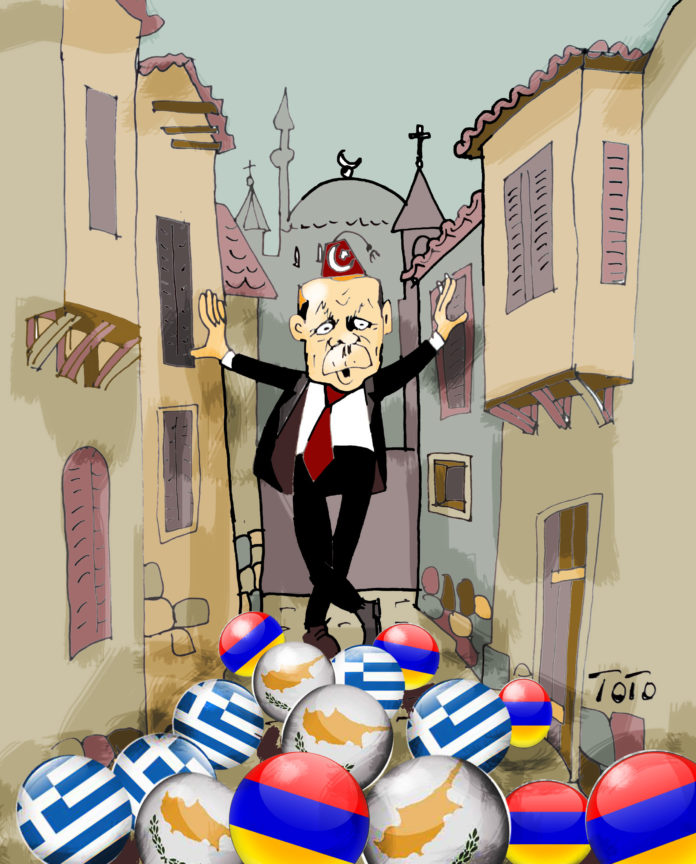Armenia, Greece and Cyprus have been destined to be natural allies as victims of Turkey’s crimes against them, but for a variety of reasons, those friendly relations have not lived up to their potential. But the landscape is changing, once again due to the Turkish factor, and this coalition may finally bear fruit.
The competition to explore the newly-discovered wealth of hydrocarbon in the Eastern Mediterranean, the rise of Greece’s importance in the NATO structure and Turkey’s isolation in the Arab-Muslim world, have set into motion a new dynamic in the politics of the region.
Armenia, which was completely isolated during the 44-day war, except for some lip service from Europe, may join the fray to develop its defense capabilities. As Azerbaijan has been rearming, its authoritarian leader, Ilham Aliyev, has warned Armenia against “revanchism,” and against rearming itself, so that Armenia could remain at Baku’s mercy.
Russia needs Azerbaijan more than it needs Armenia and certainly will be cautious in supplying arms to Armenia. Given the existential threat from Turkey and Azerbaijan, Armenia is entitled to seek its defense needs elsewhere — or anywhere.
Although Greece and Turkey had joined NATO in 1952, Greece was always treated as the lesser member, with Turkey always being favored against the latter. To press the point, a ration of 7/10 was maintained in the procurement of arms to the two countries. That is why Athens was first to blink every time there was a standoff between the two countries.
The narrative around the Turkish occupation of Cyprus in 1974 has been distorted to present the Greek side to be the provocateur. This narrative suggests that the Greek military junta is to blame for orchestrating a coup against the legally-elected President Archbishop Makarios through an opportunist called Nikos Samson who vowed to unite the island with Greece (Enosis).










